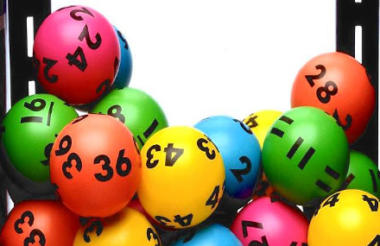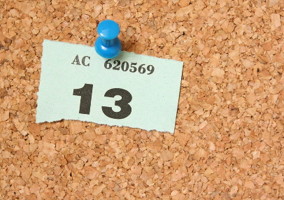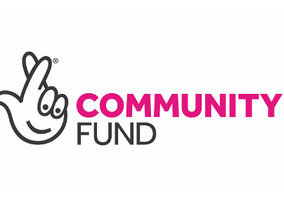The government will raise the annual sales limit for society lotteries to £50m, which is £50m less than was expected.
The Department for Digital, Culture, Media and Sport consulted on society lotteries from June to September last year and recommended increasing the annual ticket sales limit from £10m to £100m.
Sector representatives, including the Lotteries Council, the Institute of Fundraising and the People’s Postcode Lottery said they were disappointed that the upper limit of £100m had not been approved.
A spokesperson for DCMS told Civil Society News it aimed to make the necessary legislative changes in the autumn.
'This is a missed opportunity for real reform'
Tony Vick, chair of the Lotteries Council said: “After seven years spent engaging with ministers on reforms to society lotteries, we welcome the government’s decision to take a step in the right direction by increasing the annual sales limit from £10m to £50m.
“We will continue to campaign for increasing the annual sales limit to £100m, as the government itself acknowledged when it made its original recommendation last year, and we look forward to setting out this case in a further consultation.
“Whilst the announcement offers some clarity to the hundreds of charities across the country that are facing increasing financial uncertainty – and we would urge the government to implement these changes as a matter of urgency – this is a missed opportunity to introduce real reform to the sector.
“We agree with the minister that society lotteries are a vital funding mechanism for thousands of charities and we regret the decision to ignore reforms that would have enabled them to do more."
Gambling Commission to consult on new rules
DCMS also said that the Gambling Commission now plans to consult on measures to tighten the licensing framework for society lotteries.
It said this was because society lotteries should be held to high standards of transparency and that players should have a clear idea of how their money is spent.
NCVO: '£50m increase addresses much of the issue'
Douglas Dowell, policy manager at NCVO told Civil Society News that the increase in the annual sales limit to £50m would broadly address the issue.
He added that NCVO welcomed the increase and said: "We were persuaded that only modestly increasing it would do nothing to alleviate the bureaucratic burden for the largest charities, and might deter medium and moderately large charities from growing their fundraising through this channel.
"We supported a rise to £100m in our response to the consultation, but the £50m limit will address much of this issue."
But he added that there are still issues to be resolved when it comes to umbrella lotteries: "Although they’re marketed under a national brand, in law they are considered groups of individual society lotteries, meaning that – provided none of the individual lotteries exceeds the limits on proceeds and prizes – the limits are effectively bypassed for the umbrella lottery as a whole."
A long-running campaign
Clara Govier, People’s Postcode Lottery managing director said: “I applaud the minister’s decision to reform Britain’s outdated charity lottery regulations.
“This issue really matters to charities the length and breadth of the country and, most importantly, those in need of their support.
“A £50m limit is a very welcome and highly significant milestone on our journey towards a truly transformative £100m limit.
“The time for action is now and we’d like to see the £50m limit introduced as a priority. We know there is strong support for this change from charities.
“It is right that the government is highlighting the need for increased transparency and we will continue our work to ensure players are kept fully informed of the charities and good causes they support.
“They deserve nothing less.
“The minister’s statement was detailed and comprehensive.
“We will now take the time needed to consider the government’s position carefully and provide a detailed response in due course.”
IoF calls for more regular reviews
This revision of society lottery limits is the first to happen in a decade; Daniel Fluskey, head of policy and external affairs at the Institute of Fundraising said it hoped the new limits would be reviewed more regularly to make sure the sector did not lose vital income.
He said: “We are glad to see that the long-awaited change to society lottery limits will finally be brought in, and the rise in limits will enable charities to raise more money through their lottery programmes.
“However, the incremental increase could have gone further and it is disappointing that the opportunity to enable society lotteries to do even more for good causes hasn’t been taken up.
“It is likely that society programmes will reach the increased limits soon and therefore experience the same problems that they are now.”
Prize limit increased to £500,000
The prize limit for society lotteries has also been increased from £400,000 to £500,000 in line with earlier proposals, but is lower than some in the sector were hoping for.
Vick, from the Lotteries Council, said: “Increasing the maximum prize limit to £1m, regardless of sales, would have offered future head room for charity lotteries to grow and to continue providing the much-needed funding they already contribute to the nation’s charities.
“Allowing new lotteries to aggregate their returns to good causes over a three-year period would have enabled them to take into account sizeable start-up costs.
“And by raising the sales thresholds the regulatory burden on small charity lotteries would have been significantly reduced.”
Changes to the National Lottery
The government also said it plans to make changes to the National Lottery by raising the age limit for scratchcards and instant win games to 18.
It said this would protect vulnerable young people.
Mims Davies, minister for sport and civil society, said: “The National Lottery raises vast sums for good causes, and society lotteries play a vital role in supporting local charities and grassroots organisations. These measures will ensure we create the best landscape so people across our communities can continue to benefit.
“But we also need to make sure that the National Lottery is fair and safe. That is why we are looking to raise the minimum age for instant win games so children and young people are protected. We are open to all feedback on changes to this and all of the various lottery products.”
|
Related articles












